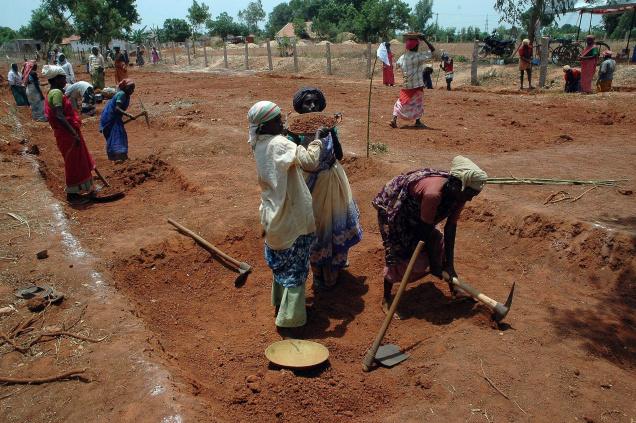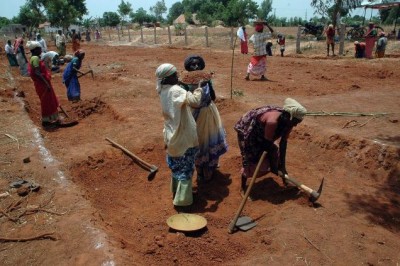BeyondHeadlines News Desk
New Delhi: The strategies of United Progressive Alliance (UPA) government for inclusive growth “stood exposed a few years ago when the Arjun Sengupta Commission report highlighted that the “other India” gained very little from most pro-poor schemes.
The key findings of the latest National Sample Survey Office (NSSO) survey bring to the fore, yet again, the futility of pursing misguided job-generation policies in the name of lofty goals instead of going for all-out reforms, said economists and political analysts.
“The latest data reinforce the conviction that what we actually want are reforms, not mere schemes,” said renowned economist Shankar Acharya . The government may not face any direct political threat, but they are following wrong policies in its efforts to achieve something big, he added.
The Manmohan Singh-led UPA government began showcasing the grand idea of financial inclusion in its first stint starting from 2004 and later expanded its pro-poor schemes to the second term as it looked to warm up to the aam aadmi (common man).
It also drew flak from other political parties, especially the Left, which calls the UPA’s pro-poor policy a “policy of deception” by creating greater avenues for profit maximisation for the corporates at the cost of increasing burdens on the common man.
According to the latest NSSO data, only 2 lakh jobs were created annually from 2004-05 to 2009-10, when the first UPA government was in power compared with 12 million jobs created by the previous Bharatiya Janata Party (BJP)-led National Democratic Alliance (NDA) from 1999-00 to 2005-05. The latest survey was conducted between July 2009 and June 2010.
Madhu Kishwar, senior fellow at the centre for the Study of Developing Societies, said: “These schemes such as the MNREGA and others are only band-aid solutions to address poverty and generate jobs.”
“What is actually required,” said Kishwar, who is also a member of the National Commission on Enterprises in the Unorganised and Informal Sector, “are economic reforms in non-corporate sectors such as agriculture and labour”. She added that the poor can’t wait for benefits of liberalisation to trickle down. Instead, they need reforms that directly help them earn more, said she.























